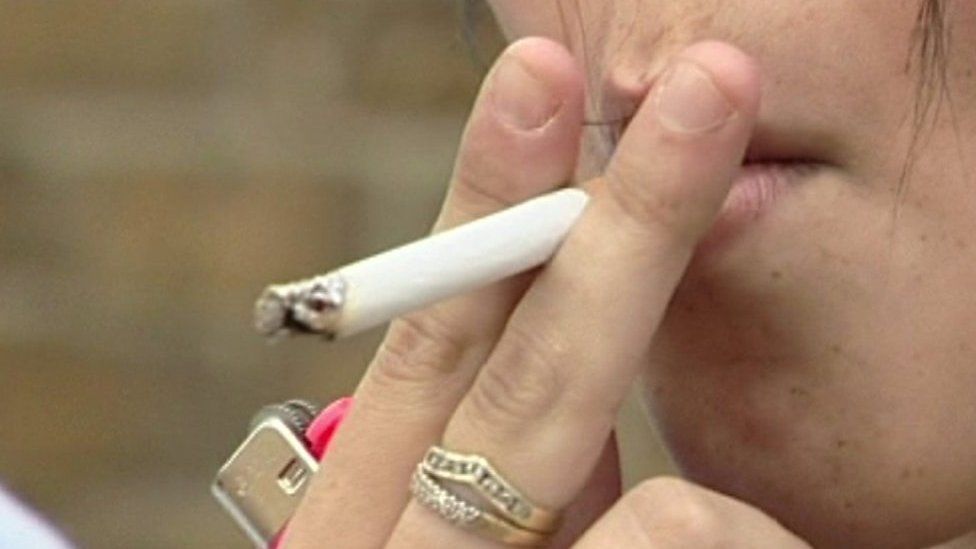Increased or minimum tobacco price 'could cut number of smokers'
- Published
- comments

Increasing the cost of tobacco or setting a minimum price could be used as part of a campaign to drive down the number of smokers in Scotland.
Public health experts also say reducing the availability of tobacco and incentivising retailers not to sell it may help tackle health inequalities.
The proposals come after the Scottish government announced it will introduce minimum alcohol pricing next May.
NHS Scotland figures show smoking causes over 10,000 deaths each year.
The government body has described tobacco use as "the biggest cause of preventable death in the country".
NHS Health Scotland and the Scottish Collaboration for Public Health Research and Policy (SCPHRP) at the University of Edinburgh have put forward the ideas as part of a new national tobacco strategy.
They also want to see mass media campaigns to encourage smokers to stop, and reduce exposure to second-hand smoke.
It is recommended that effective policy actions should focus on reducing health inequalities.
More than one in five adults in Scotland (21%) currently smoke, which is down from 28% in 2003.
Poorer areas
However, adult smoking levels have been static since 2013.
And rates are still highest in poorer areas, with 35% of adults in the least well-off areas smoking compared to 10% in the most well-off.
Dr Garth Reid, principal public health adviser at NHS Health Scotland and one of the study's authors, said: "Scotland's health is improving but the gap between the health of the best and least well-off is widening.
"It's where we are born and the conditions in which we live that influence the likelihood of whether or not we smoke. Findings from this study highlight that changing the price and availability of tobacco could contribute to reducing health inequalities."
The report points to the success of recent strategies to reduce cigarette brand awareness among young people.
It says there has also been a decrease in the amount of children exposed to second-hand smoke in the home.
John McAteer, senior research fellow in SCPHRP at the University of Edinburgh and co-author, said: "Smoking rates are no longer falling; they are at a stand-still.
"This is a stark reminder of how much still needs to be done to tackle smoking.
"Our study indicates what experts in the field think are the key areas that the Scottish government should focus future tobacco control policy actions upon, in order to build on the successes of the 2013-2017 strategy."
Illicit trade
The report was welcomed by Scotland's public health minister, Aileen Campbell, who said it endorsed the Scottish government's tobacco strategy.
She added: "Our new tobacco strategy, to be published next year, will support more progress, including targeting smoking rates in communities where people find it most difficult to quit."
The smokers' campaign group Forest described the tobacco pricing plans as "patronising and deeply offensive".
Spokesman Simon Clark said: "This middle-class war on smoking has to stop.
"Tobacco is a legal product and if adults choose to smoke knowing the risks, that choice must be respected.
"Making tobacco even more expensive would discriminate against those who are less well-off. It will also fuel illicit trade by encouraging more smokers to buy tobacco illegally."